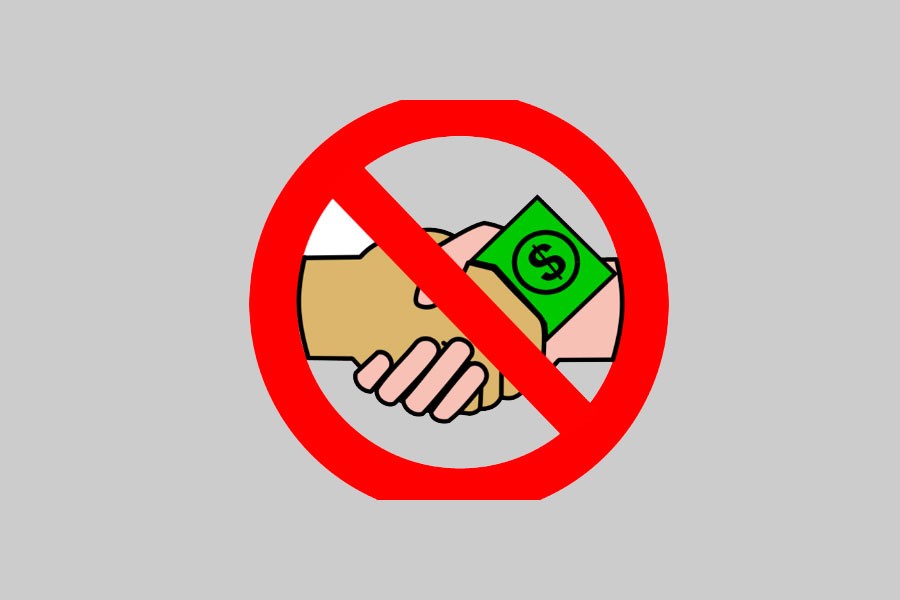A cashless India is not an idea just dropping from the sky; nor is it an agenda whose blueprint Narendra Modi carried in his briefcase when he first stepped into 5 Lok Malyan Marg (the prime minister's residence in New Delhi). Its roots can be traced at least as far back as to 2009 when an eminent economist, Prime Minister Manmohan Singh, launched the biometric database system, Aadhar. Ever since, as more than one-fifth of India's population joined the banking system and more than a whopping 95 per cent of that population joined the digital world, Modi's 2016 ban on 85 per cent of the country's circulating cash proved to be the coup de grace of a cashless country. Stephen MacBride has aptly noted India's stride in becoming "the first digital, cashless society" (Business Insider, July 2, 2017).
There is more to it. As Indian Finance Minister Arun Jaitley observed during his brief October 2017 Bangladesh visit, any economy "overtly dependent on cash harms the poor and supports corruption" ("Cash-based economy works against the poor, leads to corruption, says Jaitley," bdnews, October 04, 2017). He might also have added that, by bringing poor people into the banking system, without massive governmental incentives to prevent large-scale zero bank-balances (which Modi's government is already supplying), chances of the impoverished account-holder borrowing, running eventually into high debts, and, above all, becoming a tax-target for the first time, could leave that person in thicker financial mud than ever before.
That is not an empty fear, if the case of the credit-card holder is any guide. With its 1950 advent, just in the United States, credit-card debt has mushroomed, so much so that not having a credit-card debt is increasingly looked upon as being un-American. In this century, the average US citizen's credit-card debt has increased from just over 5,000 USD to just over 7,500 USD, with the total consumer debt approaching 4.0 trillion USD today. James J. McAndrews of the Wharton Financial Institution Center is just about as worried about the 7.5 per cent of US households without a bank account as Jaitley was about the 42 per cent of Indians outside that system in 2014, but for contrasting reasons ("Should we move to a mostly cashless society?" The Wall Street Journal, September 24, 2017). Whereas Jaitley was more concerned about reducing crime and tax-evasion, McAndrews feared a cashless society would leave the day-labourer stranded, immigrant workers hamstrung, and crisis-ravaged people, such as victims of Hurricane Harvey, even more distressed. Pushed to the limit, phasing out large bills is interpreted by Jaitley as re-monetising the starved banks, but to McAndrews the recipe for legitimate industries to resort to illegitimate methods, and thereby jeopardise the system (in the absence of large bills, he argues, legitimate business may resort to fraudulence to pay off expensive expenditures).
Though the debate is healthy, as no strategic economic policy approach is ever foolproof, life will still go on as it has been: digitalising the economy, and with it, as wide a population spectrum as possible, cannot be stopped, and neither the diminishing cash role in that system.
In India, for instance, Manmohan's Aadhar, a 12-digit identity propped by finger-prints and retina-scan, became "the largest and most successful IT project ever," according to MacBride. To this was added 'India Stack', a compendium of personal data Modi initiated last year, which opens many doors for particularly those not in the mainstream who might benefit from such mainstream services. If phasing out higher-denominated currencies pumped $80 billion into the Indian banking system, just narco-trafficking alone in the United States could bring in slightly more from underground sources (current expenditures for drugs total $100 billion, to which $50 billion is added for counter-measure expenditures). Recapitalisation of such magnitude in a global economy still tottering from the 2008-11 Great Recession, might make a positive difference.
Inclusion is another alloyed advantage. Politically, democracy has proven time and again as the better form of government than authoritarianism, notwithstanding Aristotle's caution that the perverted form of the 'rule of the many' is nothing but mobocracy. Education may make a difference politically, just as enlightenment would on the economic front. Here neo-liberalism has alone unleashed all the forces dismantling the rigid lines between developed and less-developed countries. External vigilance is not just a political necessity to protect freedom, but also economical. No less in banking and finance. Modi's Pradhan Mantri Jan Dhan Yojana programme seeks to both bring the masses into the banking system and jump-start their conversion of zero account-balances into something more active. For a country riddled with rickshaw-pullers and menial-staffed households, a cashless society may make no sense, but, with safeguards, digital inclusion may become the only step to move up the social ladder. In that sense, if the US credit-card ploy of opening new accounts with a zero-annual percentage interest rate (APR) worked to boost spending, Modi's gestures can do the same on a smaller scale but with many more safeguards.
For all the those reasons, India's cashless turn constitutes a revolution: if it works, the world will have plenty to learn and follow; if it does not, on the one hand, we cannot blame India since the rest of the world is headed in the same direction at varying speed without wanting to go the full distance, and, on the other, humans have a history of learning from mistakes.
It is within this context that Jaitley took it in his stride, during his October 2017 Dhaka stay, to pitch a cashless society to Bangladesh. That is the next story in this series. Is Bangladesh already sliding in that direction? What if it unfolds with too heavy Indian flavouring by India? In short, what is at stake in Bangladesh?
Dr. Imtiaz A. Hussain is Professor & Head of the newly-built Department of Global Studies & Governance at Independent University, Bangladesh.


